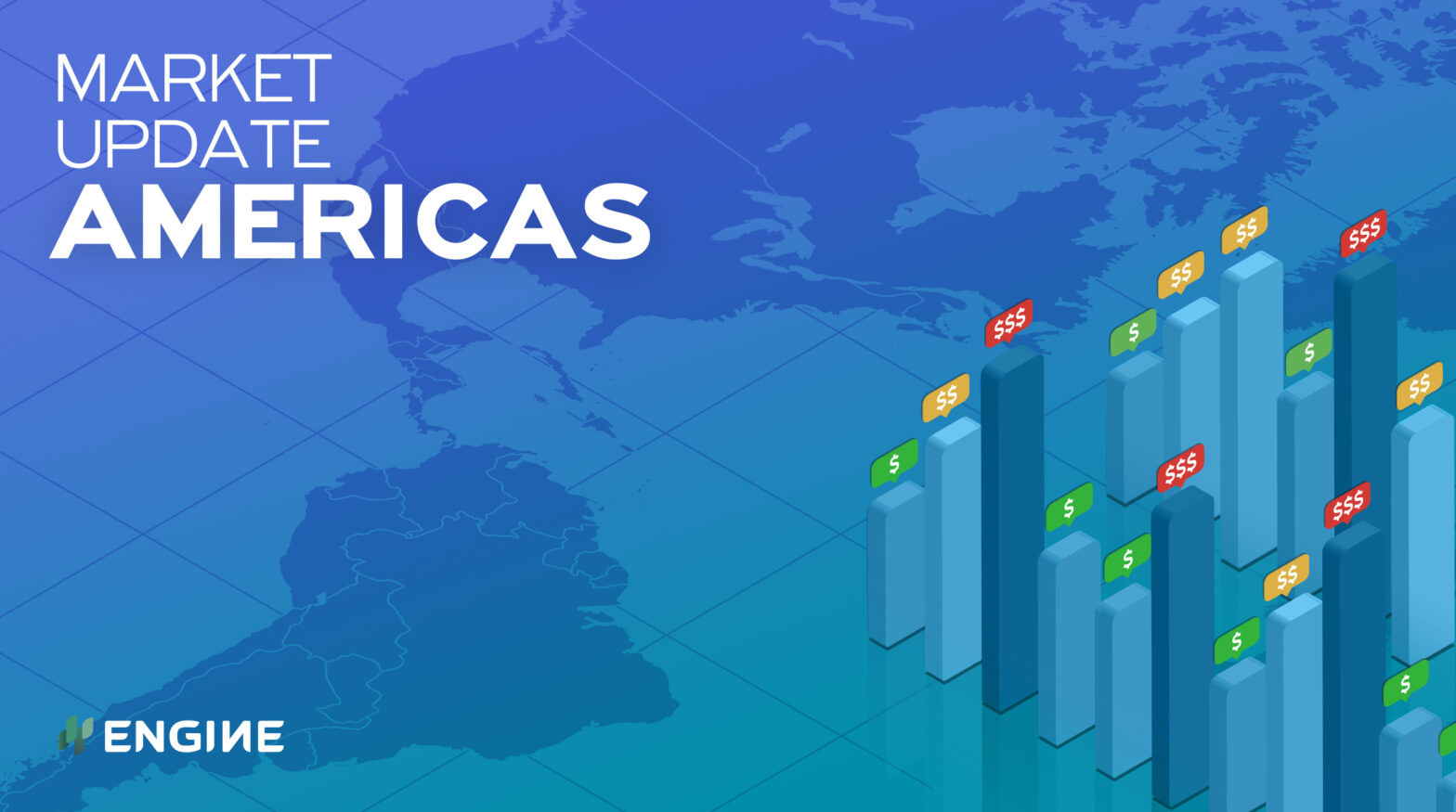Most bunker prices have moved markedly down in the Americas, and Zona Comun’s VLSFO price has swung to discounts to some Brazilian ports further north.
Changes on the day to 09.30 CST (14.30 GMT) today:
- VLSFO prices up in Balboa ($1/mt), and down in New York ($12/mt), Los Angeles ($11/mt), Zona Comun ($9/mt) and Houston ($5/mt)
- LSMGO prices steady in Balboa, and down in Zona Comun ($24/mt), Los Angeles ($17/mt), Houston and New York ($13/mt)
- HSFO380 prices down in Balboa ($12/mt), New York ($10/mt), Houston ($9/mt) and Los Angeles ($6/mt)
New Orleans’ VLSFO has become more expensive against other US Gulf Coast ports, with its premium widening to $17/mt over Houston, and its price moving to near parity with Corpus Christi.
The Gulf Coast ports are well supplied with VLSFO and LSMGO. There are more limited options for HSFO380 in Corpus Christi, where only ex-pipe supply is available.
New York’s LSMGO price remains considerably lower than other East Coast ports. Its VLSFO price discount to Philadelphia has widened to $28/mt.
Houston and New York’s LSMGO values have dropped my equal amounts and remain at parity. Several US Gulf Coast ports price LSMGO competitively with Houston now, including Beaumont, Galveston and Texas City.
Zona Comun’s VLSFO has made a sharp fall and flipped to discounts to several Brazilian ports including $4-5/mt to Rio Grande and Paranagua. Santos, meanwhile, has the grade nearly $20/mt lower than in Zona Comun. VLSFO is available for prompt dates across the ports.
Brent
The ICE Brent September futures contract has shed $0.50/bbl since Friday, to $75.00/bbl at 09.30 CST (14.30 GMT).
Brent has come under pressure as the market’s attention refocuses to the pandemic while output negotiations between Saudi Arabia and the UAE remain deadlocked.
G20 finance ministers have said the global economic recovery from the pandemic is fragile as vaccine rollouts have been uneven and the Delta-variant spreads considerably faster than earlier variants.
“The recovery is characterised by great divergences across and within countries and remains exposed to downside risks, in particular the spread of new variants of the COVID-19 virus and different paces of vaccination,” a communique from the G20 meeting cited by Reuters said.
The UAE and Saudi Arabia have yet to come to an agreement over output policy. Negotiations have been at an impasse in the wake of a cancelled OPEC+ meeting last week in which they clashed over output quotas. Without a deal, OPEC+ looks set to roll over current cuts to August.
The impasse has fuelled uncertainty about further easing of OPEC+ output cuts, and could result in member states taking individual initiative and pump more oil.
“In the absence of an agreement, we think members will increase output and we’ll see a breakdown of a broader deal, which would suggest weaker prices in the longer-run,” ING head of commodities strategy Warren Patterson said in a note.
